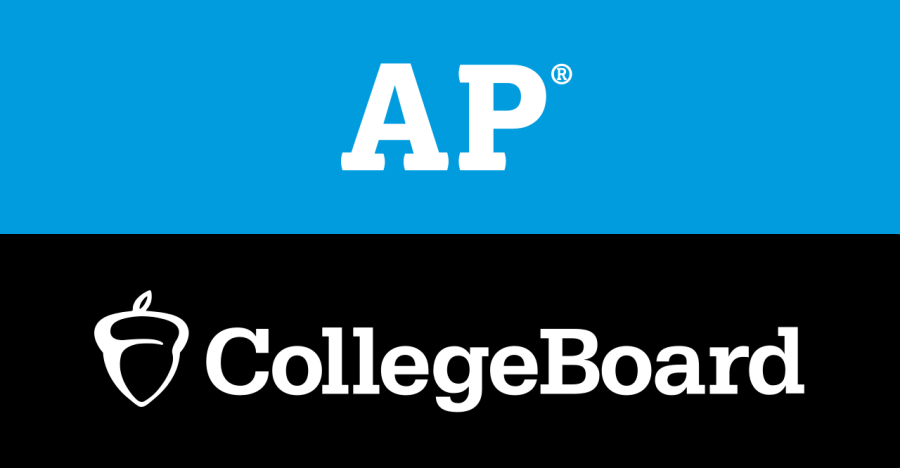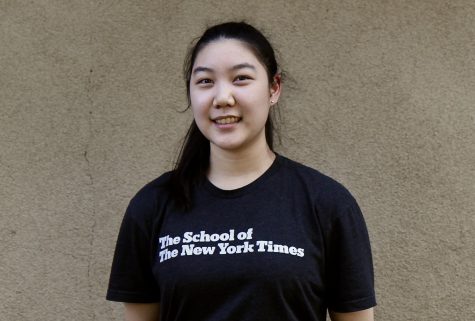CollegeBoard modifies AP exam procedures
used from CollegeBoard under fair use
Collegeboard made changes to the AP exam to accommodate for COVID-19
April 3, 2020
Due to concerns over the COVID-19 pandemic, CollegeBoard is modifying the procedures for the Advanced Placement (AP) exams, including allowing students to take the exam online at home, as well as offering full refunds of those who wish to cancel their exams.
The Centers for Disease and Control has advised individuals to stay at least six feet apart from each other and to avoid mass gatherings to prevent the spread of COVID-19. Because CollegeBoard exams often take place in classrooms with many people, the organization has modified many of their testing procedures. As of March 20, all AP exams are now open-note and online; they are able to be taken at home on any device, and responses may also be hand-written and submitted by photo. Each exam will be composed of around one or two free-response questions, with some exceptions, and will be 45-minutes long, to be taken on either of two test dates. One test date will be between May 11 to May 22, and the second, make-up test date will be during the week of June 1 to June 5. AP exam scores will remain on the traditional 1-5 grading scale. They will also be canceling subscores, such as AB subscores for Calculus BC exams, and assisting in providing Internet and devices to those who may not have those services. Due to this occasion, starting on March 25, students and teachers were allowed to access free, live AP review courses. These review courses will be focusing on concepts from the first 75 percent of the course. In addition, supplementary lessons include topics from the final 25 percent of the course. More information on how to access the testing system will be available later on this month.
“A 45 minute test sounds like there will be a lot of time pressure, especially since all the tests are becoming free-response based,” junior Michael Zhao said. “I can see how all these unprecedented test format changes are in response to and unprecedented time. With so few questions, I’m curious how the scoring of the tests will be affected.”
Further, due to schools nationwide being disrupted by the pandemic, CollegeBoard has also cut down on the material that will be tested in the exams, especially units that CollegeBoard does not expect students to have learned by this point in the school year, and is developing free online AP materials to be used in conjunction with school learning.
CollegeBoard and FUHSD are also offering refunds to students who wish to cancel their AP exam registration, as CollegeBoard does not take the registration money until after AP exams are completed.
“We’ve gotten a handful in the last 24 hours [after the announcement was sent out],” said Assistant Principal Eric Wong. “I expect them to be trickling in. Part of me also thinks that them being 45 minutes, and not as long and not covering all the curriculum, I think students would just be like, ‘Yeah, I’ll just take it. I can do it from the comforts of my home,’ which for me brings up all these other questions of test security.”
This has not been an easy change to coordinate. For starters, CollegeBoard had also changed their AP program registration date to October, which shifted the usual AP timeline. In addition, Lynbrook has an enormous amount of people taking AP exams.
“In a place like Lynbrook, we have about 1000 students take over 3000 exams, which is not the average nationwide,” Wong said. “So, manpower wise, Judy Boehm and Jackie Perez, our AP secretaries have been doing a lot of things behind the scenes. It’s not as easy as just to step back and refund; there’s a lot of processes that have to happen, and with 3000 exams, we’re getting some cancellations.”
The administration has been communicating often through Zoom meetings and phone calls, as well as sending emails to inform teachers of updates and support staff.
In the meantime, Wong recommends checking email accounts and communicating with teachers to stay updated.
“I think the best advice is to continually check your school email account,” Wong said. “That’s how we’re pushing out information. And I would also check out the CollegeBoard portal a lot and read the information. I also think [it’s good to] communicate with an AP teacher, see if they even have any updates or they have any advice with that, as kids are figuring out if they should cancel or not. But once again, that’s a very unique personal decision for everyone.”





























































